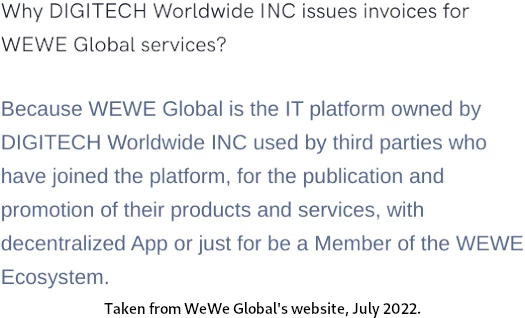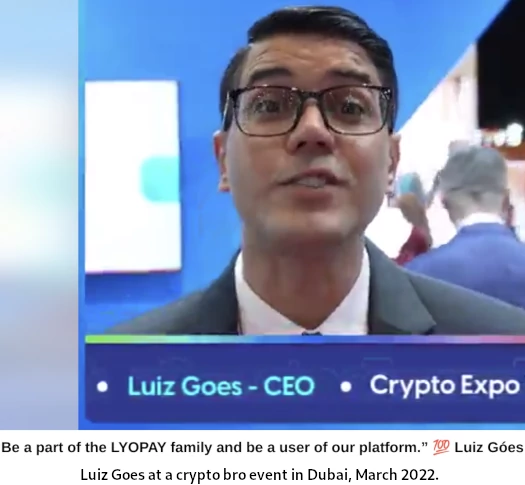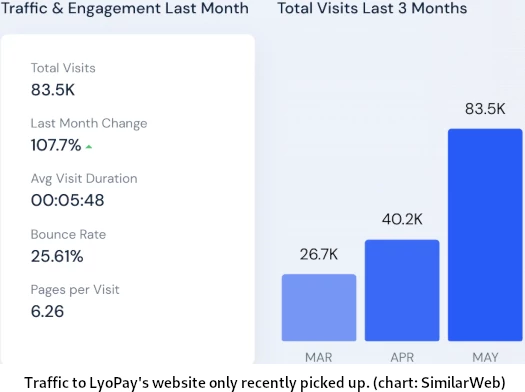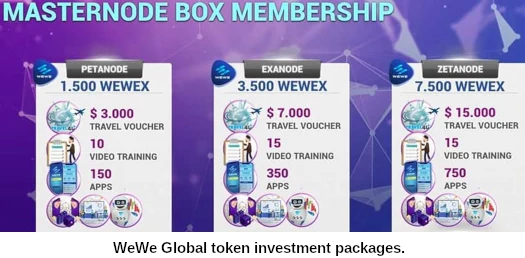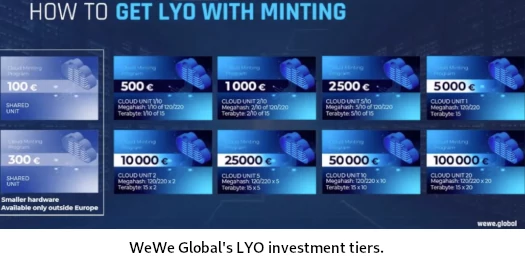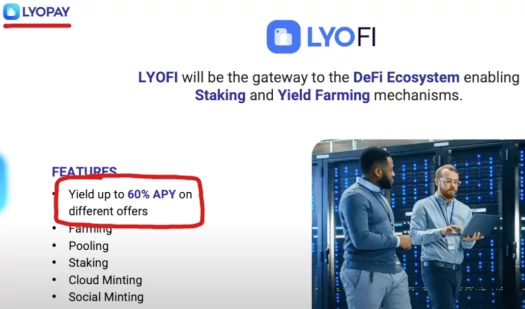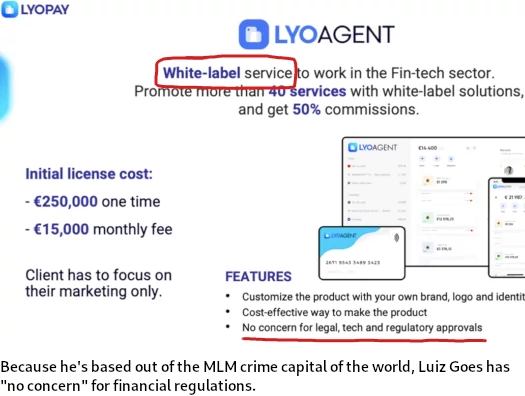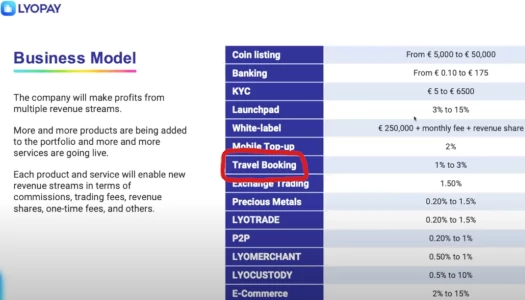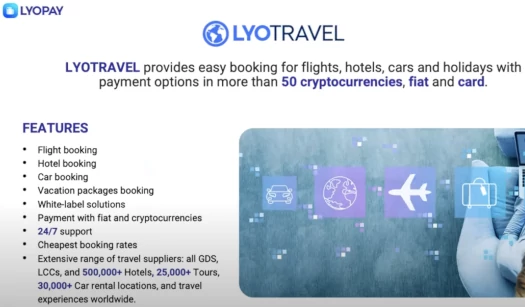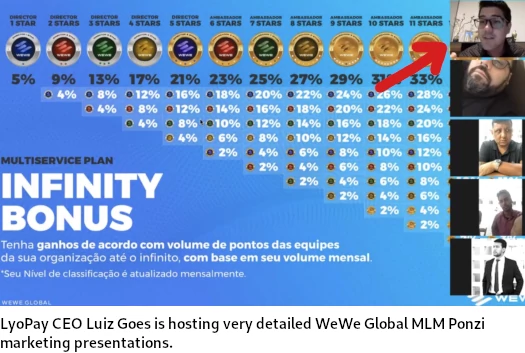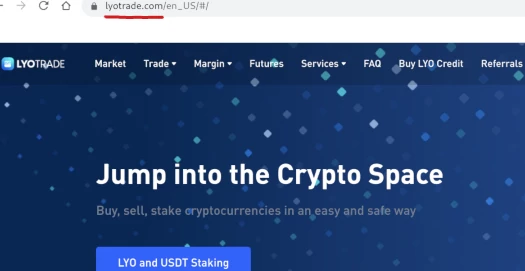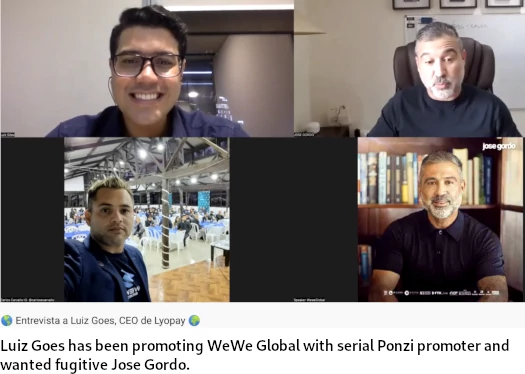
LyoFI’s website domain (“lyofi.com”), was privately registered on July 30th, 2021.
WeWe Global revealed the company, as a partnership with itself, in October 2021:
In the footer of LyoFI’s website, the following information is provided:
DIGIFI GROUP LTD
BRN: 2073860
Skeleton Bay Lot, Tortola BVI
The BVI is a scam-friendly jurisdiction that scammers only use to incorporate shell companies. Any MLM company representing ties to the BVI is an immediate due-diligence red flag.
“Digifi Group LTD” is a derivative of DigiTech Services LTD, the BVI shell company WeWe Global represents it is owned by.
At time of publication WeWe Global’s official FaceBook page is managed from the UAE and Italy.
WeWe Global’s connection to the UAE is guaranteed to be Dubai:
Dubai is the MLM crime capital of the world. As with BVI, any MLM company that has ties to Dubai is guaranteed to be there because its business model is fraudulent.
Italy appears to be where WeWe Global is currently being heavily promoted. At time of publication SimilarWeb ranks top sources of traffic to WeWe Global’s website as Italy (62%), Greece (12%) and Turkey (8%).
The only executive that has thus far put their face to WeWe Global is Luiz Goes (also spelt Luiz Goez).
Luiz cites himself as the CEO of LyoPay. LyoPay is a crypto exchange launched in 2020.
Luiz represents himself to be a Brazilian citizen. His LinkedIn features the usual string of failed crypto bro projects, dating back to 2019.
LyoPay was essentially dead until very recently:
This coincides with WeWe Global recruitment picking up in 2022.
WeWe Global’s LyoFI offering saw the Ponzi scheme launch new a new 900 day daily returns Ponzi scheme.
WEWE Global’s partnership with LYOFi presents to its users an innovative technology of minting tokens — cloud minting.
It’s the usual staking scam, orchestrated through LYOCREDIT token (LYO).
WeWe Global’s original Ponzi scheme was the same scam but with WEWEX tokens.
WeWe Global’s WEWEX Ponzi appears to have taken a back seat (read: collapsed).
WeWe Global solicits investment into LYO via euro equivalents in bitcoin and ethereum.
Ten investment plans are offered, spanning 100 to 100,000 EUR.
WeWe Global pitches LYO invested into LyoFI will pay a 300% ROI over 900 days.
The MLM side of the business appears unchanged from BehindMLM’s original WeWe Global review, published July 2021.
LyoFI Ponzi withdrawals are paid in LYO, which affiliates convert into bitcoin.
The Cloud Minting Program, brought to you in partnership with LYOFi, is a service to rent hardware and mint LYOCREDIT tokens. You can store LYO or swap them for bitcoin.
With WeWe Global and LyoFI being a Ponzi scheme, this will last until invested funds dry up.
Note that math guarantees the majority of investors in Ponzi schemes lose money. WeWe Global and LyoFI will of course represent you’re making money through LYO token daily return payments.
Trying to cash that for bitcoin is another story. It’ll work until it doesn’t (no more money to steal).
Taking a step back to make sense of this, it appears WeWe Global’s original WEWEX Ponzi collapsed sometime in late 2021. They might be keeping it limping along with new activity through LyoFI.
Prior to getting into bed with WeWe Global, LyoPay was a dying/dead crypto exchange.
Luiz Goes is running his own Ponzi through LyoPay, promising investors 60% a year.
This is doable because Goes created LYO tokens on demand at the push of a button.
For investors again the issue is converting LYO into something that can actually be cashed out. It’ll work until it doesn’t.
Digging deeper into the business relationship between LyoPay and WeWe Global, it’s probably a variation of the white label Ponzi factory service Goes offers:
One thing that caught my eye with LyoPay’s white label Ponzi offering was travel bookings:
WeWe Global bundled travel bookings with its original Ponzi through “Travel4You” – that is still up at “travel4you.io”.
Traffic to the site is dead though because nobody is investing in WeWe Global for travel discounts, they’re there for the Ponzi scheme.
What I’m thinking is WeWe Global’s original Ponzi scheme was set up within LyoPay. That brings us back to Luiz Goes.
If, as represented, WeWe Global just has a white label partnership with LyoPay, why is Luiz Goes giving detailed WeWe Global marketing presentations?
Goes is
- in Dubai;
- promoting WeWe Global; and
- owns the platform WeWe Global now seemingly runs its Ponzi scheme off of.
Further supporting Goes running WeWe Global is the fact we haven’t seen a single WeWe Global executive in a over a year.
LyoPay is also incorporated as DigiLYO App LTD, a UK shell company. UK shell incorporation is another red flag but the naming structure of DigiLYO App LTD is what’s significant here.
We have
- WeWe Global – DigiTech Services LTD;
- LyoFI – DigiFi Group LTD; and
- LyoPay – DigiLYO App LTD.
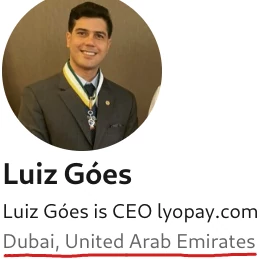
Timeline wise WeWe Global’s website was registered seven months prior to LyoPay. Both companies’ social media accounts however were set up in August 2020 – so they launched around the same time.
I believe the internal exchange WeWe Global initially launched with was a clone of LyoPay’s standalone exchange. LyoPay has now been properly integrated through LyoFI.
Goes has already demonstrated he’s running multiple exchanges with LyoTrade.
I can’t rule out Goes running WeWe Global but I can’t definitively confirm it yet either. As it stands, all signs point to Goes being behind WeWe Global and LyoFI.
Anyway, regardless of who’s running an MLM Ponzi scheme, the outcome is the same:
The majority of investors lose money to the scammers running and top promoters.
Jose Gordo, believed to be based out of Spain, has been desperately trying to get WeWe Global off the ground in South America.
Gordo is best known in the MLM industry as a top net-winner in the notorious OneCoin Ponzi scheme.
In late 2020 Gordo was indicted in Argentina on criminal fraud charges related to OneCoin. He remains a wanted fugitive.

